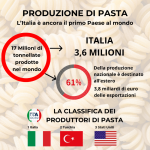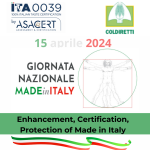“L’Arte del Gusto” in Meissen, Germany, officially joins the network of restaurants certified 100% Italian by ITA0039 by ASACERT.
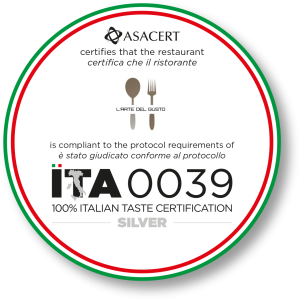
Stefano Muoio, leads the kitchen of “L’Arte del Gusto” and tells us his story, what it means to work abroad and how Italian cuisine is perceived.
What Italian city are you from and what is your relationship with Italy today?
I was born in Milan, a city renowned for its vibrant culture, high fashion and fine cuisine. I still maintain close ties with my city through relationships with relatives and friends, and I retain a deep attachment to cultural roots and culinary tradition, which influence my passion for Italian cuisine.
My children graduated from the De Filippi Hotelier Institute in Varese. My eldest son gained valuable experience working in various restaurants in the province of Varese and Milan from 2011 to 2018. Meanwhile, my second son decided to specialize in making Neapolitan pizza.
Tell us your story: how the idea for the restaurant came about.
In 2008, unfortunately, I lost my wife. As soon as we had the opportunity, we took the chance to move to Germany, since in Italy it became almost prohibitive to think about opening our own business. Here, we were lucky to access funding that allowed us to build our restaurant. Our vision of catering focuses primarily on introducing people to true Italian flavors. This begins with the selection of high-quality raw materials and extends to the use of traditional and innovative cooking techniques, such as vacuum cooking.
What kind of cooking do you do?
Our cuisine is traditional cuisine revisited. Unfortunately, cream is overused here in Germany because it is easier to create a dressing for any dish, but it compromises the final taste, which turns out to be the same for all dishes. For example, why not use a parmesan cream to season porcini ravioli as well?
Under the holidays we also make stuffed pasta, otherwise for normal service we rely on Italian suppliers.
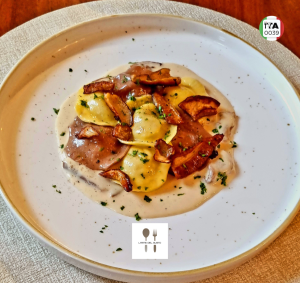
What do you think is the secret of Italian cuisine’s worldwide success?
The secret of Italian cuisine definitely lies in the unique ability of Italians to adapt and be appreciated for being expansive and bringing cheerfulness wherever they are. Food, as a result, is seen as a means of aggregation and not just sustenance, because eating well is good for the spirit and for health, provided it is executed in the right way.
Is there any advice you would give to tourists choosing an Italian restaurant abroad?
As for some advice to dispense to tourists abroad, I would definitely recommend reading the menu carefully, checking for correct spelling and that there are no dishes on the menu with absurd ingredients, such as shrimp or mango in pasta carbonara. In addition, I believe that for genuine and freshly prepared cuisine as quality cuisine should be, it is important to check the quantity of the dishes offered on the menu, as the more dishes there are, the less fresh they are.
Describe three reasons why a customer should enter your restaurant.
Customers should enter my restaurant so that they can learn about Italian cuisine as seen from other aspects as well, which are not only those given by custom, because the food is prepared respecting the ingredients with technique and passion, and because in this place Italian cuisine is attacked and denigrated by so many restaurateurs who show off by exploiting the reputation of Italian cuisine, without being Italian or capable, but their purpose is only to make money.
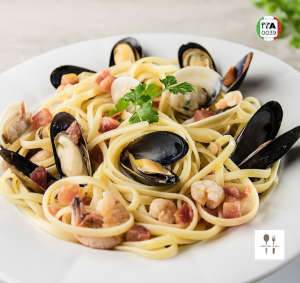
What prompted you to apply for ITA0039 | 100% Italian Taste certification?
I thought that obtaining ITA0039 certification was very important and even essential to be able to continue to ensure the good and fair popularization of Italian cuisine.
Stefano, like many other restaurateurs, has dedicated his life to bringing authentic Italian cuisine with its products, beyond national borders.
ITA0039 is more than just a certification: it is increasingly the symbol of an excellence that can really make the difference between fake and original, playing a crucial role in defending Italian agri-food products against the phenomenon of Italian Sounding.


